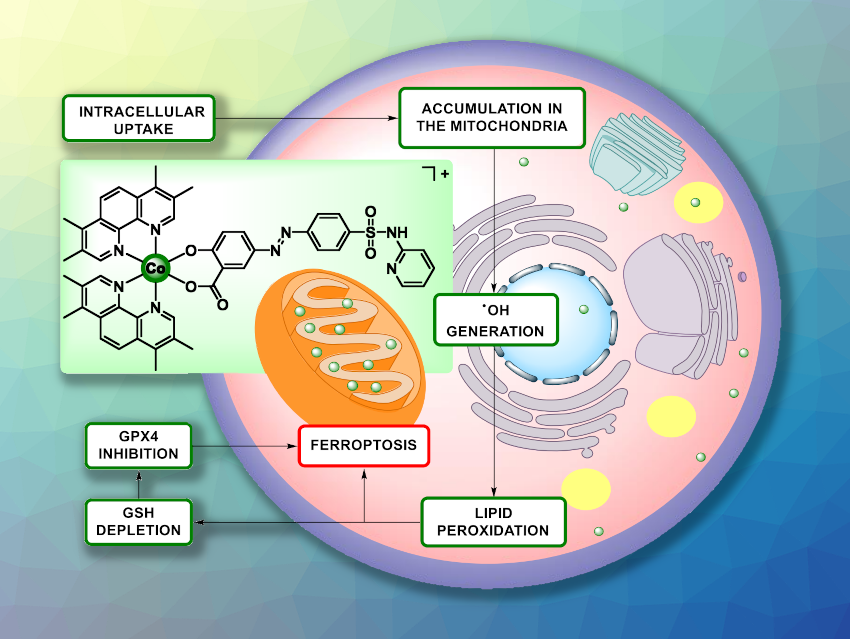Cancer is one of the leading causes of death. Most chemotherapeutic agents used to treat cancer in clinical settings kill cancer cells by inducing apoptosis, i.e., programmed cell death. However, they can have drawbacks such as poor therapeutic efficiencies and the development of drug resistances. Thus, the development of new types of chemotherapeutic agents that work via different mechanisms is an interesting research target.
Johannes Karges, Ruhr-University Bochum, Germany, and colleagues have synthesized a Co(III) polypyridine sulfasalazine complex (pictured) that can induce ferroptosis. Ferroptosis is a different type of programmed cell death involving the (usually) iron-catalyzed production and accumulation of lipid peroxides (LPO). This leads to oxidative stress, cell damage, and ultimately, cell death. Thus, ferroptosis inducers could be useful to kill cancer cells. Sulfasalazine is usually employed as an anti-inflammatory drug.
The team prepared the complex by first oxidizing cobalt(II) chloride to a cobalt(III) intermediate, which was then combined with the ligand 3,4,7,8-tetramethyl-1,10-phenanthroline. The chloride was removed as AgCl using silver salts, and sulfasalazine was added. The solubility of the complex allows it to be dissolved in aqueous solutions/under biological conditions, while also being lipophilic enough for high cell uptake. The complex showed a cytotoxic effect in the low micromolar range.
The researchers propose a mechanism of action that involves accumulation in the mitochondria of cancerous cells, followed by the production of hydroxy radicals that cause the formation of lipid peroxides. This ultimately overwhelms the antioxidant defenses reliant on glutathione (GSH) and the glutathione peroxidase 4 enzyme (GPX4) and causes cell death by ferroptosis. According to the team, the development of ferroptosis-inducing metal complexes could provide new options for the treatment of cancer.
- Ferroptosis Inducing Co(III) Polypyridine Sulfasalazine Complex for Therapeutically Enhanced Anticancer Therapy,
Nicolás Montesdeoca, Lukas Johannknecht, Elizaveta Efanova, Jacqueline Heinen-Weiler, Johannes Karges,
Angew. Chem. Int. Ed. 2024.
https://doi.org/10.1002/anie.202412585


